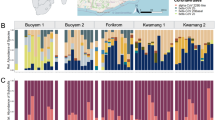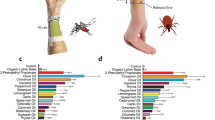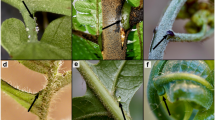Abstract
IN NATURE of April 19, p. 598, Holdaway and Evans make reference to the stage in which the hibernation of Lucilia sericata Meig. takes place. Their observations show that although “both larvæ and puparia were recovered from the soil surrounding baits exposed in the autumn and examined towards the end of the season”, that 87.4 to 92.2 per cent of these puparia (plus larvæ pupated within eight days of collection) were parasitised. From these facts it is evident that in Toulouse, France, from which station the letter is addressed, the normal mode of hibernation of Lucilia sericata, excluding the influence of parasitism, is in the larval stage, and thus is similar to that found by me in North Wales in 1928–1929 (NATURE, May 18, 1929, vol. 123, p. 759). In the latter case, and again last winter, when observations on the hibernation of Lucilia sericata have been confirmed, not a single puparium appeared among the hibernating larvæ.
This is a preview of subscription content, access via your institution
Access options
Subscribe to this journal
Receive 51 print issues and online access
$199.00 per year
only $3.90 per issue
Buy this article
- Purchase on Springer Link
- Instant access to full article PDF
Prices may be subject to local taxes which are calculated during checkout
Similar content being viewed by others
Author information
Authors and Affiliations
Rights and permissions
About this article
Cite this article
DAVIES, W. Parasitism in Relation to Pupation in Lucilia sericata Meig. Nature 125, 779–780 (1930). https://doi.org/10.1038/125779b0
Issue Date:
DOI: https://doi.org/10.1038/125779b0
This article is cited by
-
A global perspective of forensic entomology case reports from 1935 to 2022
International Journal of Legal Medicine (2023)
Comments
By submitting a comment you agree to abide by our Terms and Community Guidelines. If you find something abusive or that does not comply with our terms or guidelines please flag it as inappropriate.



